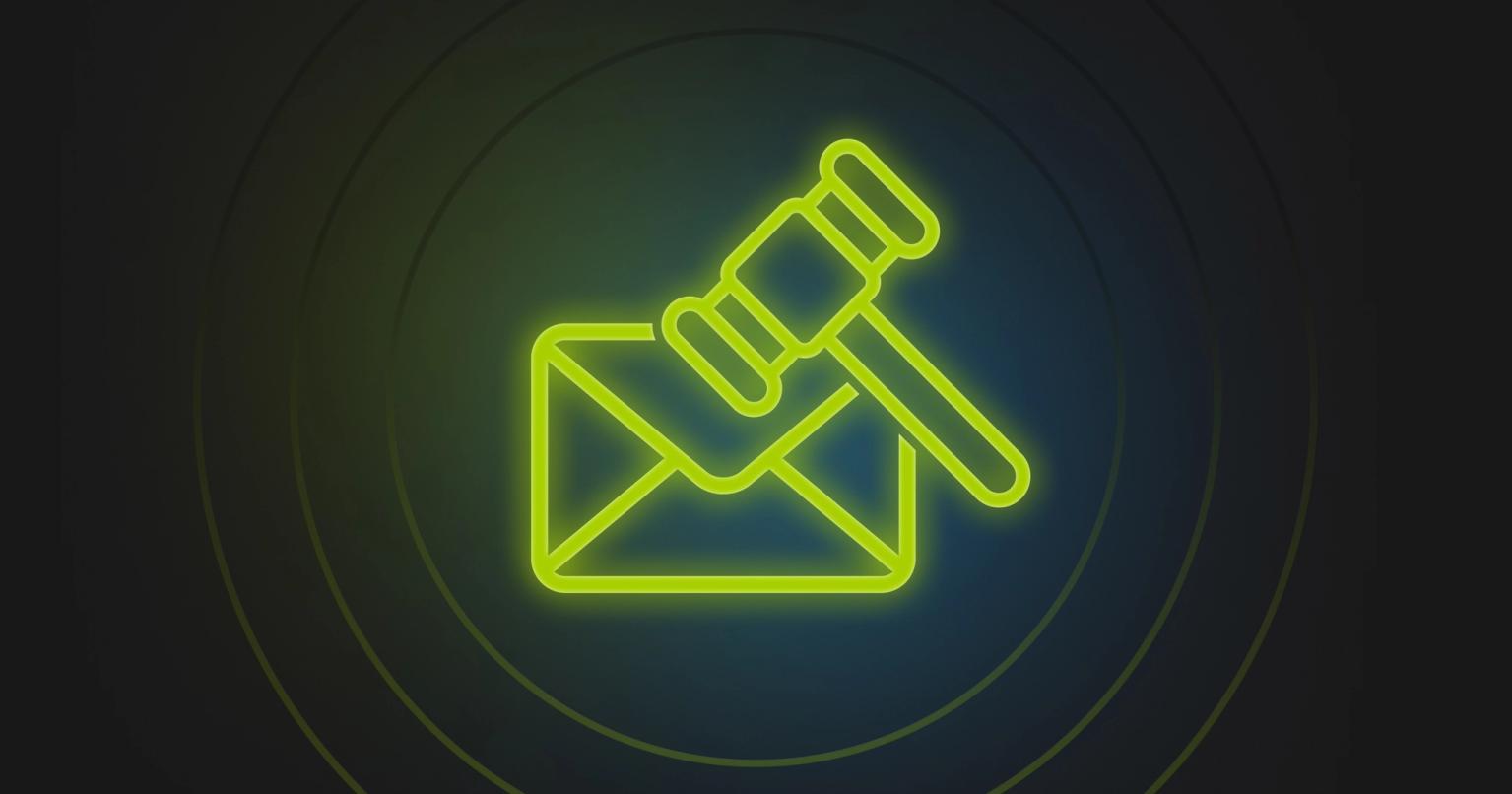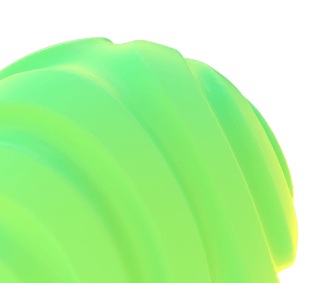10 Incredible Women of Email (that you may not have heard about yet)

Tania Blake
Director of Marketing, Knak
Published Aug 20, 2020
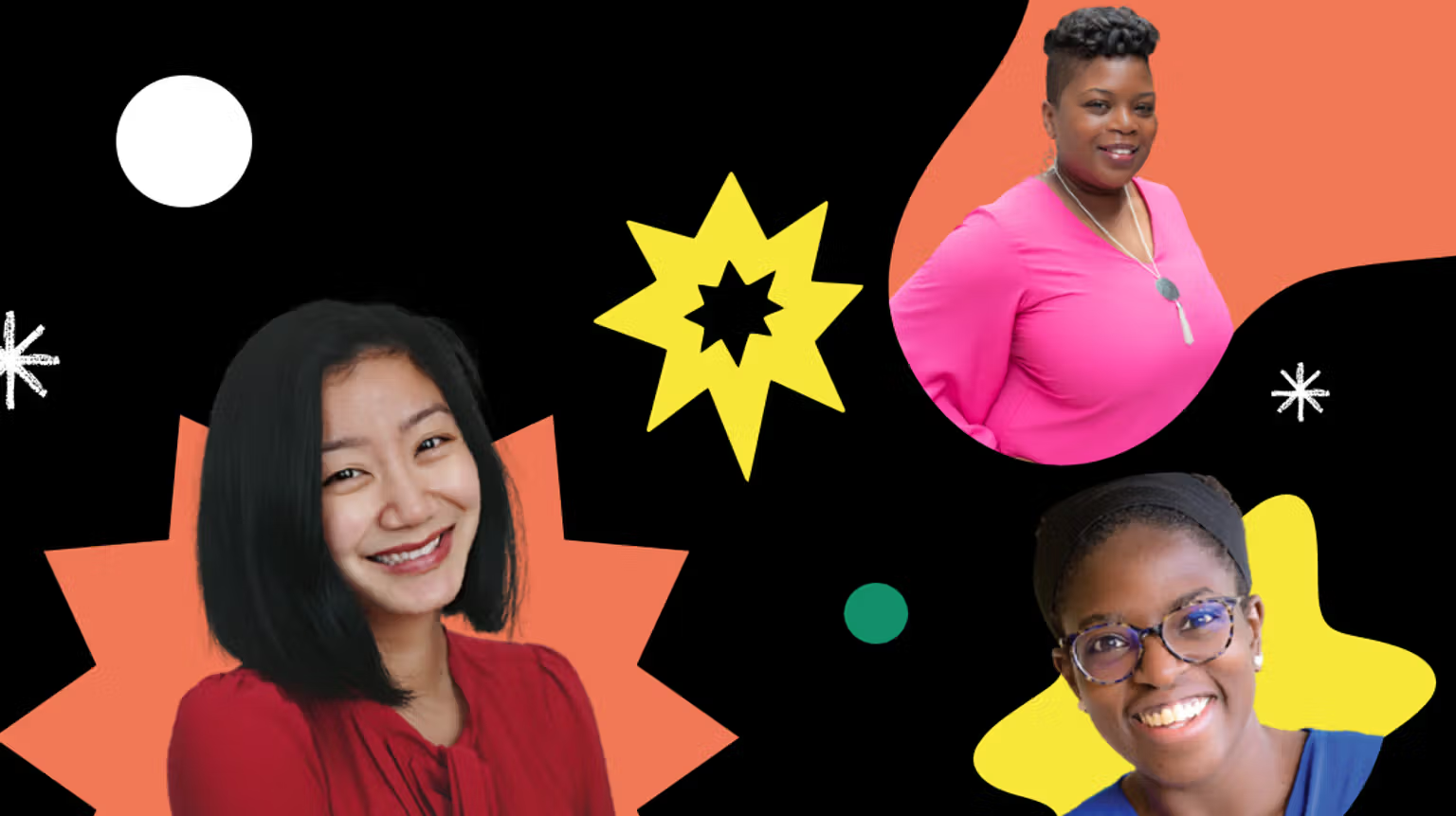
Women of Email is committed to promoting leadership among women in the email marketing space. They’re known for championing, mentoring, and encouraging their members, so when we had the opportunity to feature ten of these standout women, we couldn’t say yes fast enough.
Introducing 10 incredible Women of Email that you may not have heard about yet. Their backgrounds are as diverse as their skill sets, and though they come at it from different angles – analytics, coding, deliverability, security, automation, and content strategy, to name a few – what they have in common is an inspiring passion for their craft. No doubt, they will stake their claim in the annals of email marketing history.
The work they do and the companies they’ve launched are a testament to their endless creativity and their unique insight. They’ve overcome some incredible challenges to be where they are today, and we encourage you to get to know all 10 of them.
As an email creation platform, we love getting to know people who are as crazy about email as we are. We’re proud to be featuring these dynamic women, and we can’t wait to see what they do next.
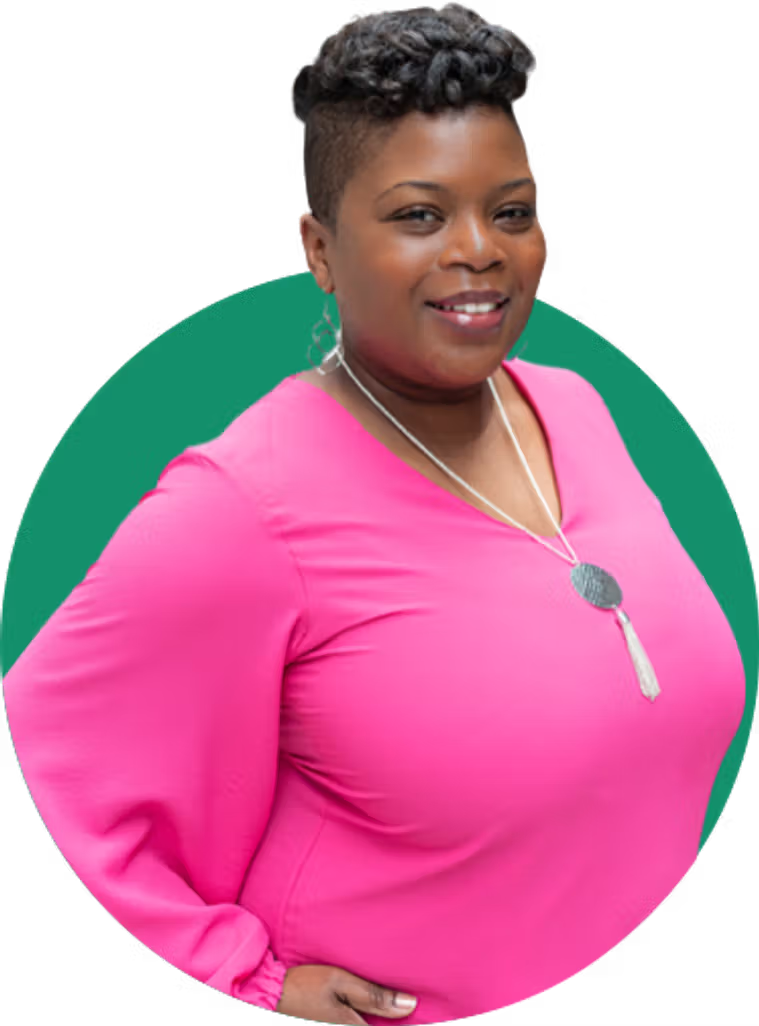
Charma Parker
CRM Strategy Manager, The Home Depot | Find her on LinkedIn
Charma is a force to be reckoned with in the very best way. With years of experience at internationally known brands, she has forged an impressive career path in the email marketing space and was the very first keynote speaker placed by the Women of Email speakers bureau. Charma is one of the CRM Strategy Managers at The Home Depot and a passionate advocate for women in the industry.
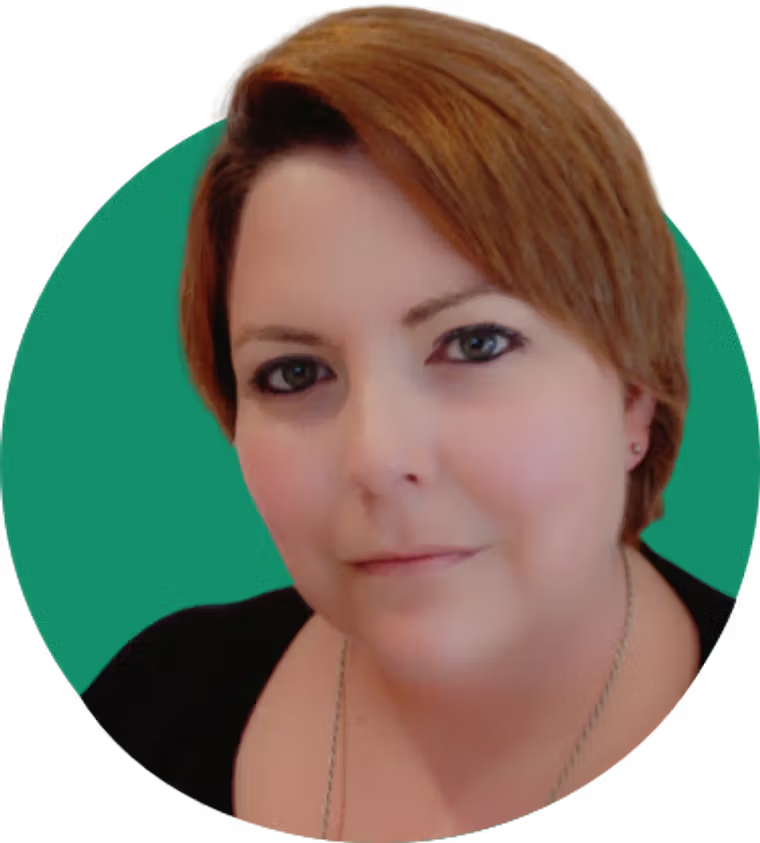
Kim Greenop-Gadsby
Marketing Automation Specialist, Proact Group | Find her on LinkedIn
Kim is the UK-based, South African-born content and marketing automation team leader at Proact Group. Kim is a terrific example of a woman whose challenges drive her to be a proactive cheerleader for others. She’s known for intentionally encouraging colleagues so they have the confidence to persevere through their own challenges in the same way that she did.
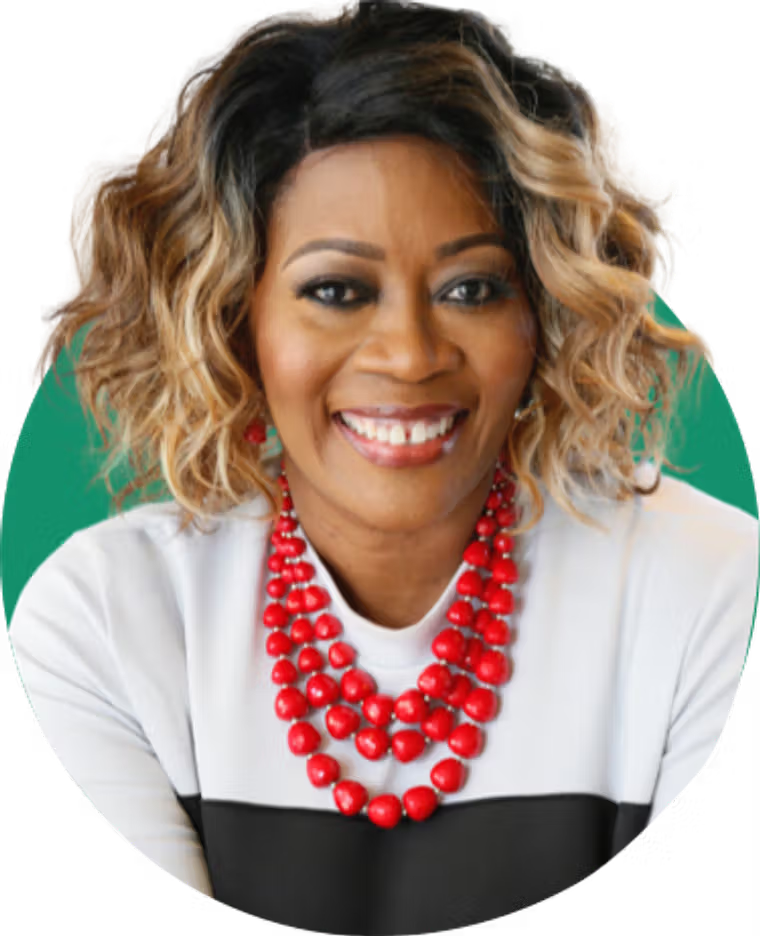
Lisa Jones
Chief EyeMail Officer, EyeMail | Find her on LinkedIn and Twitter
Lisa is the founder of EyeMail, a video-in-email startup. EyeMail has an impressive roster of clients (Porsche, Coca-Cola, and Major League Baseball, to name a few), but what truly set Lisa apart are her faith, positivity, and continuous pursuit of growth. She left a career at NASA in order to better utilize her creative abilities, and in the midst of COVID-19, she’s working on a graduate degree in Marketing Management at Harvard University.
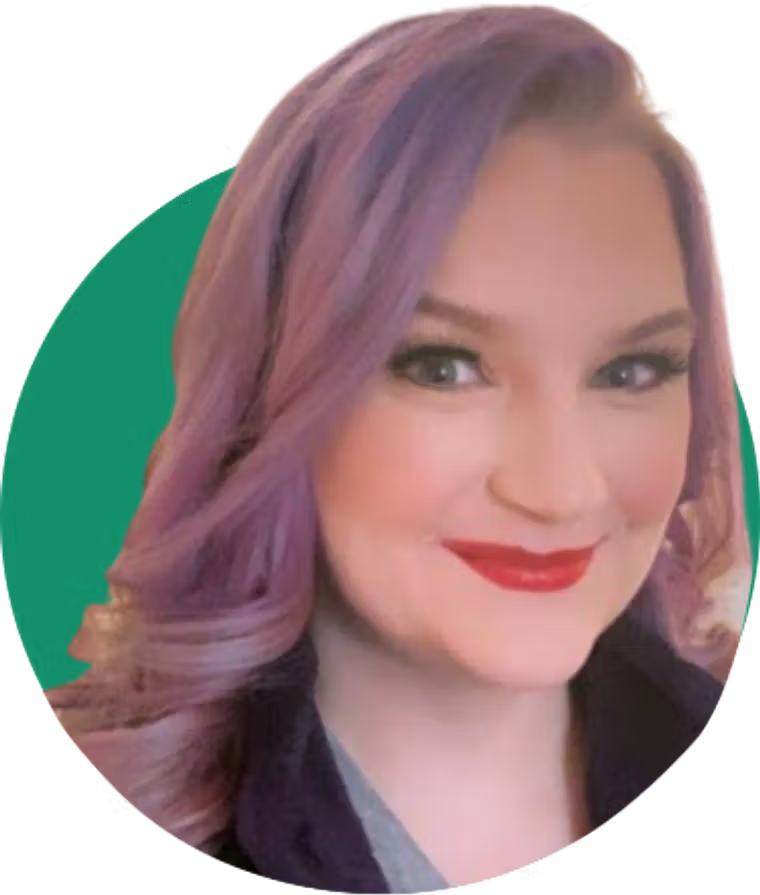
Skyler Holobach
Senior Manager, Email Reputation, Pardot and Marketing Cloud | Find her on LinkedIn and Twitter
Skyler is BUSY. By day, Skyler is the Senior Manager, Email Reputation at Pardot and Marketing Cloud. She also serves as Women of Email’s Anti-Harassment Committee Chair, which develops suggested policy guidelines for conference and event organizers. But by night, Skyler is committed to serving others in the wake of COVID-19. She has made thousands (!!!) of face shields for medical workers and first responders, partnering with local organizations to level up her operation. She’s also the only one to answer our questions in the form of a haiku 😉
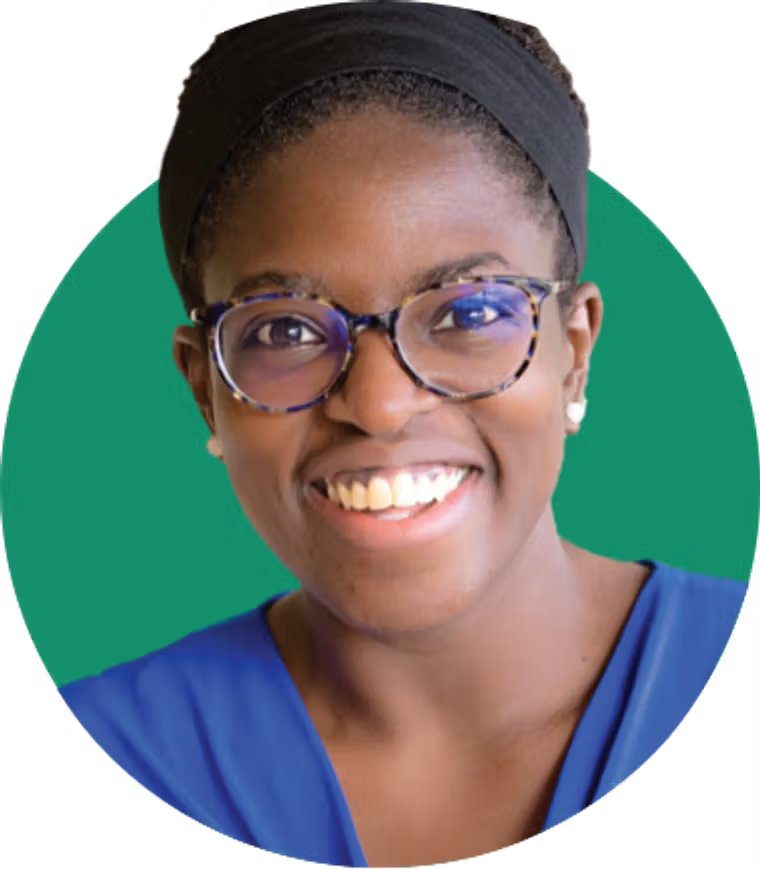
Dr. Ada Barlatt, Ph.D
Founder and Chief Analytics Officer, OperationsAlly | Find her on LinkedIn
Dr. Barlatt is the Founder and Chief Analytics Officer at OperationsAlly, an organization that helps clients derive meaningful, actionable insights from their email marketing data. She has a Ph.D in Industrial and Systems Engineering, and she loves using analytics (and math!) to help organizations make better, data-driven decisions.

Magan Le
Content Marketing Manager, Litmus | Find her on LinkedIn
Magan is the Content Marketing Manager at Litmus. She has experience as a brand-side email/automation marketer as well as a vendor-side content pro. Magan is known for her tenacity, and she describes herself as a storyteller at heart: ready to help brands shape the story they’re telling and build a successful content marketing strategy around that narrative.
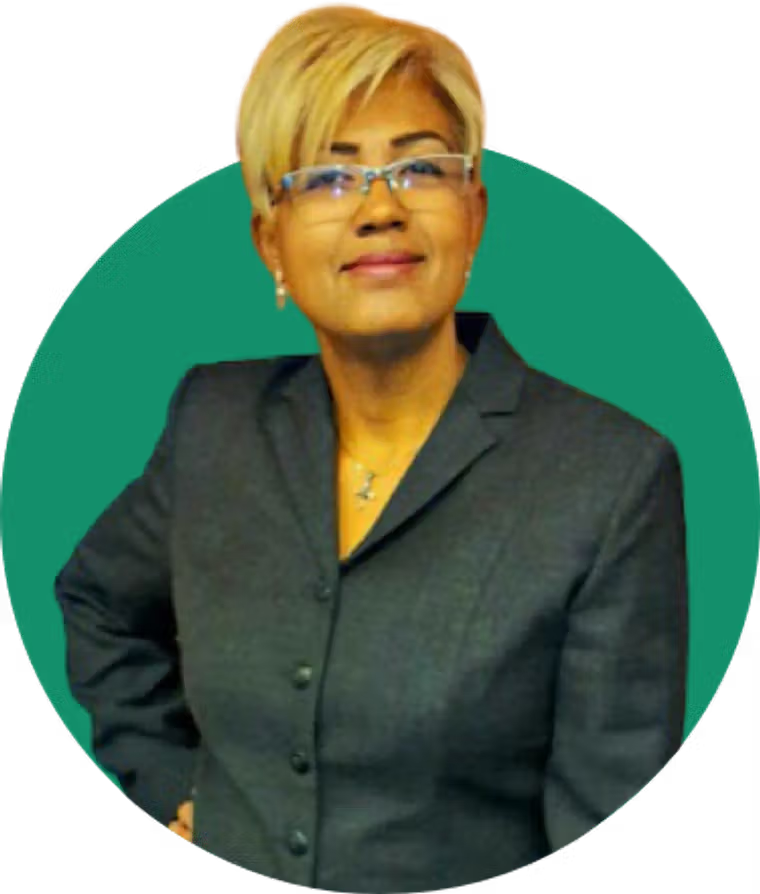
Josie Garcia
Principal, Deliverability Consultant, Salesforce Marketing Cloud | Find her on LinkedIn
Josie is the Principal, Deliverability Consultant at Salesforce Marketing Cloud, where her deliverability audits have earned her the nickname “Queen of the Data Smackdown.” She is also the Senior Advisor to the Women of Email board, and though she playfully lists her WoE role “Cat Herder” on LinkedIn, she has been integral to the success of the organization.
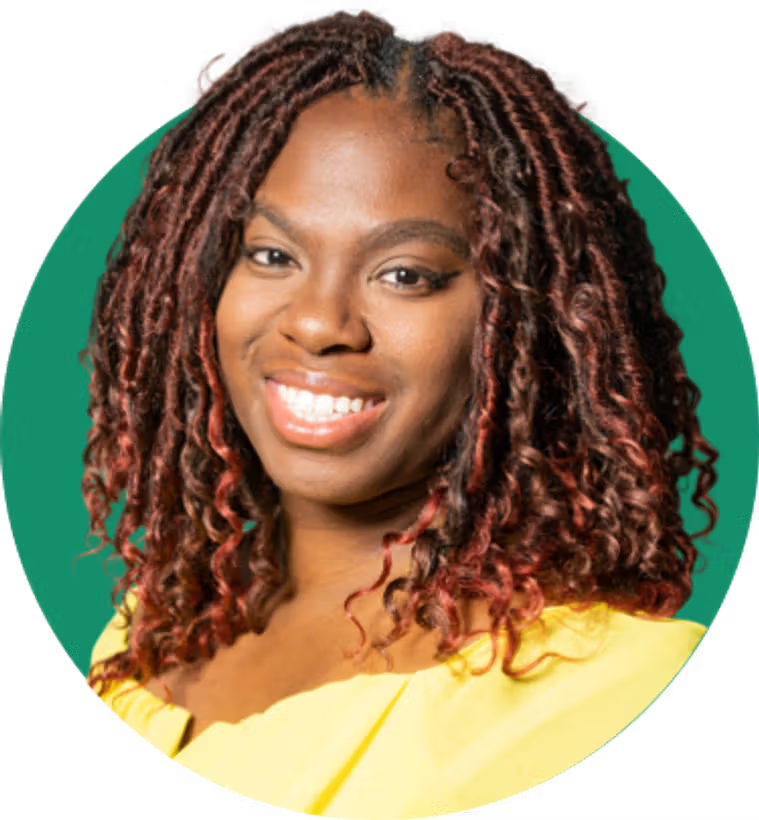
Najee Bartley
Technology/Communications Director at BBVision Multimedia, Web/Email Developer at U.S. Bank | Find her on LinkedIn
Najee is the Technology/Communications Director at BBVision Multimedia. She is committed to helping other women succeed, so she recently launched a Salesforce Marketing Cloud study group for Women of Email members, complete with study sessions and guest speakers. She has a background in psychology, and she’s combined her interest in people with her passion for coding and email development by using technology to understand people better.
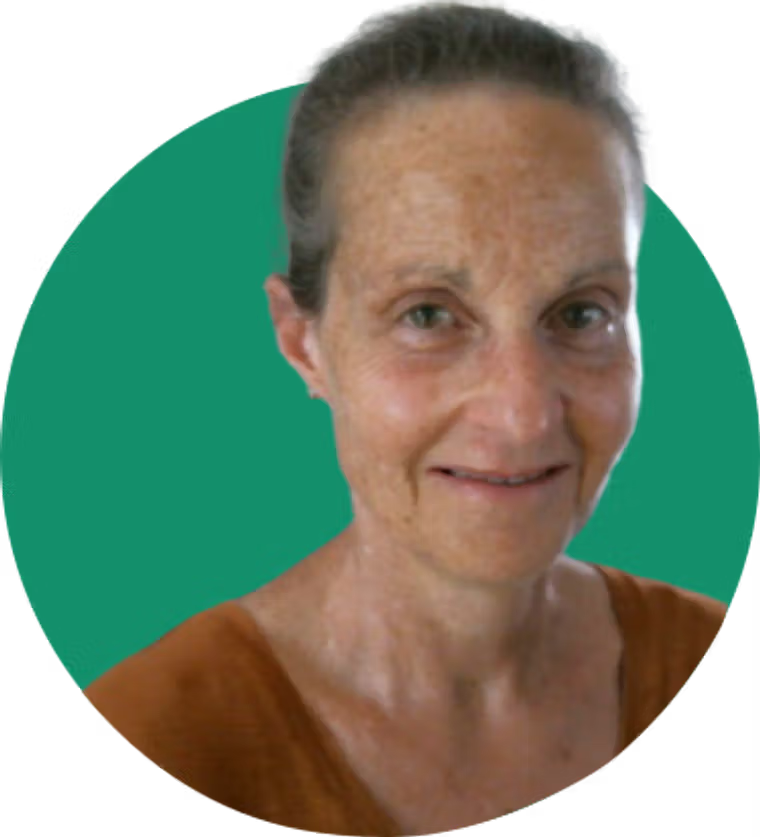
Joi Brooks
Email Marketing Specialist, Inbox Army | Find her on LinkedIn and Twitter
Joi is the Email Marketing Specialist at Inbox Army. She’s known for her deep knowledge of email and her unparalleled commitment to her clients, and she’s recently begun exploring the thought leadership space via her Email & Coffee blog.
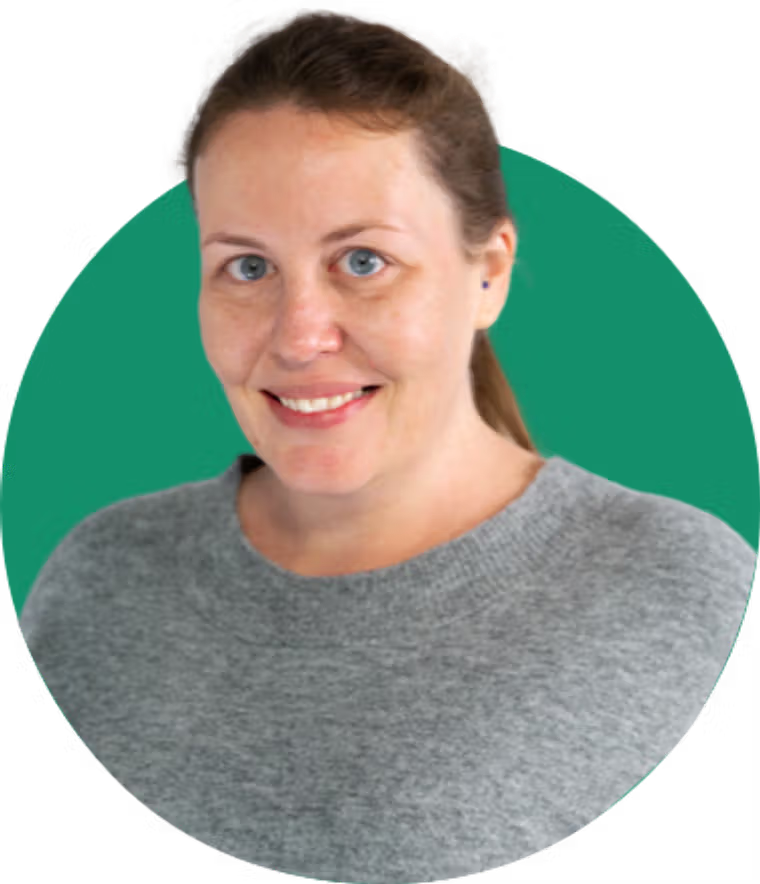
Genna Matson
Senior Salesforce Marketing Cloud Engineer at DEG, Social Admin & Co-founder at HowToSFMC.com | Find them on LinkedIn and Twitter
Genna is a brilliant engineer at DEG, a leading agency in the email space. A self-described email nerd, they are also the co-founder of HowToSFMC.com, an outstanding resource developed by and for Salesforce Marketing Cloud users.
Charma Parker - CRM Strategy Manager at The Home Depot
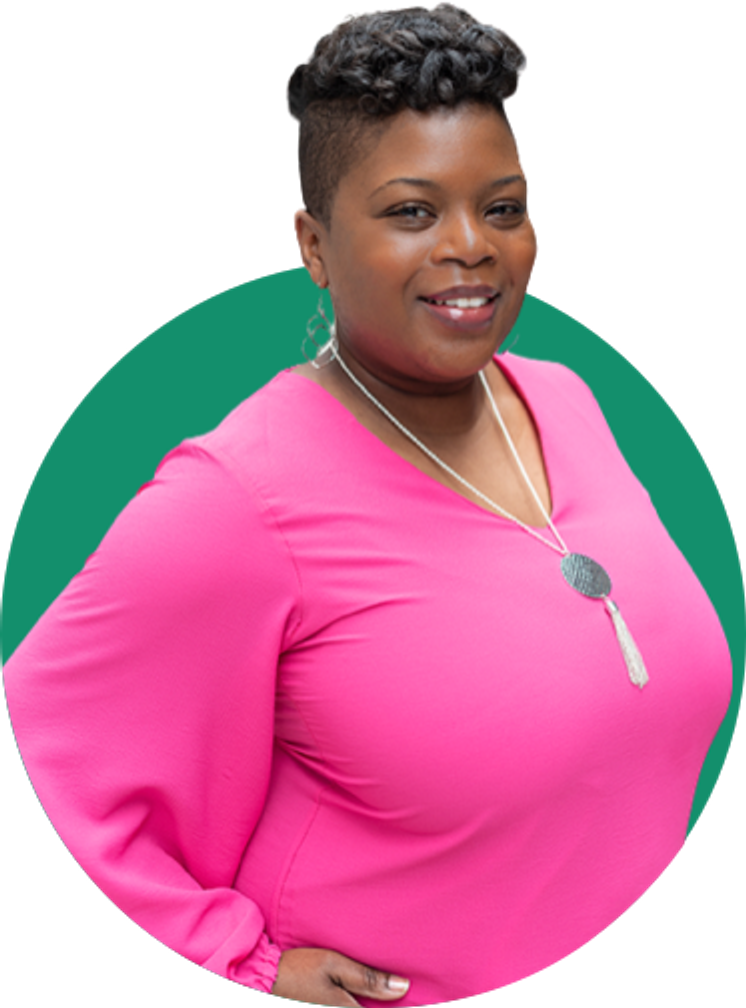
How did you get into email marketing? What do you love about it?
I started my career working on digital marketing efforts for technology startups in the Atlanta area. Initially, I was hired to work on social media and blogs, but then I stumbled into creating and sending their email newsletters. I actually didn’t like it at first, but it grew on me. I found myself looking forward to writing the content and figuring out how to get the emails to look exactly the way the clients wanted. This led to my 1st corporate position in email, and I honestly haven’t looked back in the decade since.
I love everything about email, especially the fact that there is so much you can do within the inbox. I’ve spent the majority of my career focusing on the strategy side of email, but over the past 2 years, I’ve learned more about the technical and data sides, and it has given me an even deeper appreciation for what this amazing channel can do.
Which email trends are you excited about?
This is a tough one. There is always something new (and sometimes old with renewed interest) to get excited about. But honestly, right now I’m intrigued by the renewed interest in personalization. COVID-19 gave us all a wake-up call in understanding our customers: how they want to engage with our brand, and what type of content will increase engagement.
I’m an email geek at heart. I truly love getting an email that speaks directly to me, but I also love utilizing data points to create that experience for others.
What are some of the challenges that you’ve faced in your career? How did you overcome them?
One of the main challenges I’ve faced is being undervalued in my role. If an organization isn’t familiar with how email works, it’s hard for them to see everything that you actually do during the day. I’m not just putting a few words and images together and sending via Outlook!
An email marketer’s days can get pretty full with all the tasks needed to get an error-free send out the door while juggling multiple requests, so I’ve often found it hard to showcase my success in order to better advocate for myself.
This is something I’m working to become better at. I’m great at pushing others to highlight how good their work is, but I’m just getting to the point myself where I can step back and reflect on the value I’ve actually driven.
What advice do you have for other women looking to get into this field?
Learn as much as you can about email and the valuable role it plays in a company’s success. In college, I was just taught about Marketing in general. I had no idea about the different channels, and I definitely had no idea what was needed to get a fully executed email into an inbox.
Never stop learning: I am still an avid consumer of webinars, case studies, etc. Rarely does a day go by when I am not learning something new. And don’t believe the naysayers- email is certainly not DEAD. Evolving? Yes. But not dead.
What do you love about Women of Email?
I love the camaraderie that this group provides. In previous roles, I would often feel like I was completely alone in my thinking: that this wasn’t how something should be done, but since I was often working alone, I didn’t have anyone to turn to for advice.
Now, I find comfort in being among a tribe of others who “get it.” I’ve had a chance to connect with others at companies whose work I admire, and this group has also given me the opportunity to get on stage for speaking engagements. I participated in my 1st Women of Email panel back in 2018, and I’ve been doing panels and even solo sessions ever since.
What do email marketers need to keep top of mind in the current climate?
As marketers in general, change is a constant, but COVID-19 definitely tested how we handle it. Many of us have weathered this pretty well – and our brands’ email efforts are much better for it – but our biggest test is coming with the holiday season. I am very excited to see the innovation we will bring to inboxes during the 2nd half of the year. We’re going to have to juggle keeping our customers informed while also providing a quality experience that converts.
How do you see the role of email changing in the coming months/year?
I don’t know if I see the role of email changing as much as I see how it is perceived within organizations changing. As budgets change, many may start to look at owned channels like email a bit differently and rethink the role it plays in an omni-channel strategy.
When COVID-19 communications needed to be sent earlier this year, email was the main channel used (for better or worse). Since it has proven to be such an important channel, companies may start looking a bit more closely at their overall channel strategy, and I believe the role of email will continue to increase.
Kim Greenop-Gadsby - Marketing Automation Specialist at Proact Group
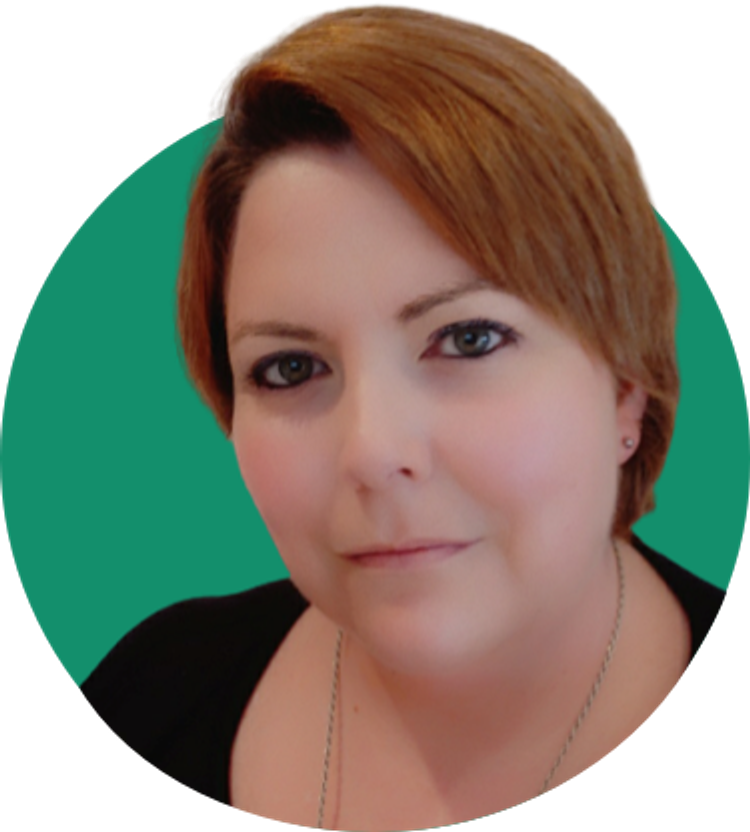
How did you get into marketing automation? What do you love about it?
I started my career as a backend developer, specializing in PHP. I loved being a developer: I loved finding bugs and fixing them. When my first son was born, I decided to reprioritize and change my career direction. I moved towards generic digital marketing and then discovered email marketing, which eventually led to marketing automation. What first interested me was the insight you could gain from the data, especially the activity data. If you use it correctly, you can make a difference in real-time and improve someone’s experience with your company.
What are some of the challenges that you’ve faced in your career? How did you overcome them?
I come from a very supportive family and was brought up believing that I could do anything. When I was 16, my career aspiration was computer engineering. I had bookshelves full of books on the topic, but my self-belief bubble popped when I went to work at a local PC repair shop to gain experience in the field. I was told this was no place or job for a woman, and I had to stay quiet until my time finished.
This crushed me, but did I listen to him? Hell no, what did he know anyway? But this was to be the first of many fights I have had in my career. What made it more difficult was my disability – I have crippling arthritis, and some days I struggle to walk. The discrimination I have had to deal with due to not only being a woman but also because of my physical disability has tested my faith in myself. There have been times I completely lost my confidence and voice. I also have an ongoing battle with depression, but I get up every day, no matter the pain or the self-doubt. I couldn’t do it without my amazing family and support network, so every time I am pushed down, I push back even harder.
What advice do you have for other women looking to get into this field?
My advice would be:
You CAN do this. Ignore anyone who says otherwise.
Join Women of Email on Facebook, introduce yourself and ask for help when you need it. We believe in you!
Read and research as much as you can. Sign up for the major platforms – they have great whitepapers and blogs. You don’t need to know everything, but knowing where to find the answers is a big help.
Speak up. If you know the answer or have an idea, don’t keep it to yourself. Similarly, support other women at the table who have also spoken up. We are a sisterhood – we aren’t fighting against each other, we are fighting together.
Don’t be worried about your experience with specific platforms. Most have the same functionality, and you can apply your skillset to learn any differences.
Don’t be too hard on yourself. Every person I know who has dealt with email marketing has sent an email to a wrong list or segment. It’s like driving: you aren’t a real driver until you’ve hit a few bumps.
Test, test, and test. Never become complacent and stop testing. There is always something you can improve.
What do you love about Women of Email?
The sisterhood. WoE is a mixing pot of experience with such an eclectic mix of talents and specialties, and we have grown so much that no matter your issue, whether it’s coding, IP reputation, or copy, someone can help. We support each other, not just with work, but also as women. We do have a slight goat obsession, but if you are passionate about email marketing, you will do fine.
What is it about your job that gets you out of bed in the morning?
Variety. With marketing automation, you aren’t just doing the same thing day in and day out. Every day you are doing something different, be that data, marketing operations, or analytics. It also helps you meet other people within your organization because you interact with so many different departments, like sales, CRM, CMS, etc. I really love learning too, so I’m constantly reading and testing out new ideas, which I’m lucky I’m able to do in my work setting.
How do you think marketing automation will change in the coming months/years?
Marketing automation has been in existence for more than 10 years, but unfortunately for most companies, their marketing automation maturity levels are still in their infancy. In fact, most know they need a platform but don’t really know how to use it or integrate it into their MarTech stack or customer data management practices.
I like to think the process of buying a marketing automation platform is similar to that of buying a large house. While we have access to all these rooms with different capabilities, most companies are only living in the basement while the rest of the house stands dormant.
We aren’t using these expensive platforms to their full potential, and this is why I see companies starting to hire specialists: they want to make sure that they’re using the platforms at full capacity.
I also have to include my favorite topic: data. Going forward, data will continue to play an even greater role in creating personalized conversational marketing.
Lisa Jones - Chief EyeMail Officer
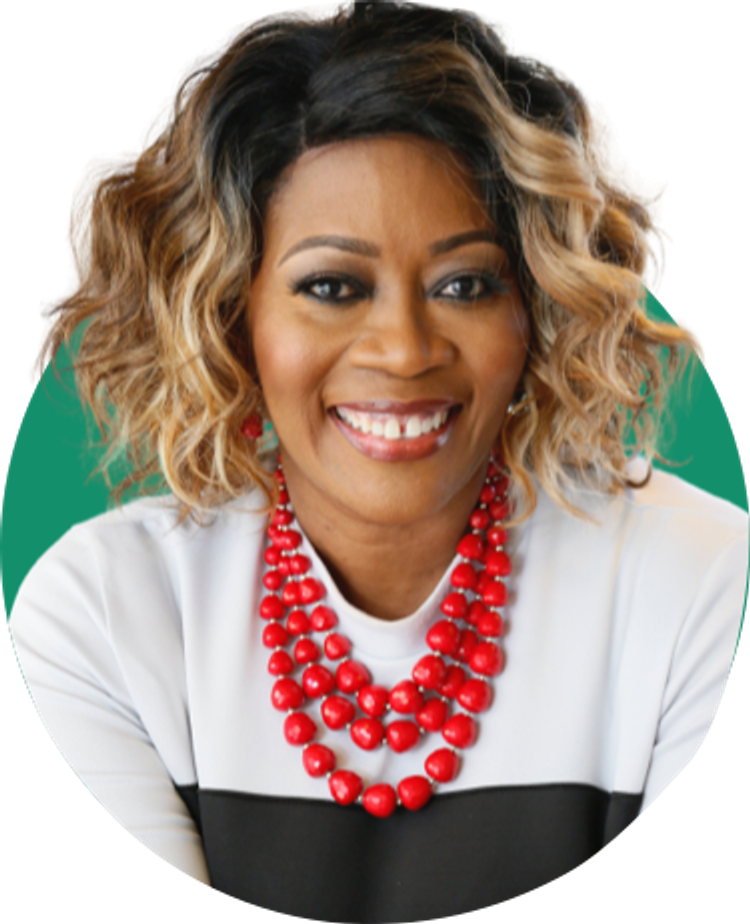
What made you switch from logistics (at NASA!) to digital marketing?
From the time I was young, I’ve been fascinated with the way processes work, like an assembly line or operations at an airport. I was naturally inclined to pursue Logistics and Procurement in college, and after I received my degree, I began a career at NASA. However, during the first few years, I began to feel stagnant. My growth had stalled, and my creative mindset wasn’t being fully utilized.
Logistics is a predictable, calculated, risk-averse business, and the more I considered it, the more I found myself captivated by the creative aspects and endless touchpoints of digital marketing.
What overlap do you see between logistics and your current role?
There are several similarities between my prior career in logistics and my current role as a Chief EyeMail Officer for my own company. Now, I’ve combined the best of both worlds: I review my operation holistically with the team from planning to execution, and we’re able to identify and define all the steps necessary to ensure a customer’s success. This gives EyeMail the flexibility to create long-term value for our customers.
Tell us about EyeMail. Why is it important in today’s business climate?
EyeMail is a patent-pending marketing technology that increases customer engagement and conversions by more than 60% by enabling video in email. This is so important because we are all inundated with emails, and the goal of marketing communications is to get the message noticed, to stand out from the clutter. Most email messages deliver a static graphic that has to be clicked. It doesn’t inspire action and is often deleted or overlooked. EyeMail provides a competitive differentiator by delivering a compelling video experience directly to the inbox. The goal is to capture attention, engage the reader, and drive an immediate call to action.
What are some of the challenges that you’ve faced in your career? How did you overcome them?
As an African-American female, some of the challenges I have experienced in my career include not being recognized for my contributions, along with a lack of access to key opportunities, introductions and connections. Challenges also previously included how to effectively build a global team and infrastructure, and I’ve had to learn how to get my voice heard, build the confidence to know that I am enough, and understand how to make a difference in the community at large.
Overcoming challenges is a continuous process, but the difference maker is my on-going ability to incite change so I can continue to expand my knowledge base, build my network, and know that I bring value to the table for delivering customer solutions.
From an educational perspective, I’m inspired to continue my growth even in the midst of a pandemic, so I enrolled in graduate school at Harvard University to focus on Marketing Management. My journey continues forward to greatness, and daily gratitude keeps me inspired and grounded!
What advice do you have for other women looking to get into this field?
My advice to other women who are interested in the email field, or any field, is to stay focused on your goal, do your research, develop a plan of action, be flexible, and be willing to step out of your comfort zone to create new relationships. Know that you deserve all the success that awaits you!
Who has been critical to your own success?
My journey has been a rollercoaster of extreme highs and lows, and it’s yielded the net result of who I am today. My faith and belief in God have been critical to my success. The support of my amazing global team, mentors, and extended family has been instrumental to my growth. Every customer that was willing to take a chance on me and EyeMail has contributed to my success. My enterprise-level clients from Delta Air Lines, Porsche, The Coca-Cola Company, Major League Baseball, Warner Media, The Billion Dollar Roundtable, Merck, and the Make-A-Wish Foundation have all been instrumental in both my personal and professional growth and success.
What’s your proudest career accomplishment?
My proudest career accomplishment to date is knowing that I started my company, EyeMail Inc., built it organically from inception, and that it thrives today as a global brand that was created to honor the memory of my loving Mother.
How do you measure success for your team?
Success for the EyeMail team is measured by the intrinsic and extrinsic value we provide for our customers, our performance levels in delivering quality services, our ability to continually innovate, increased conversion rates for our customer’s marketing initiatives, and our ability to cultivate and expand our corporate footprint as a global team of inspiring professionals.
Skyler Holobach - Senior Manager, Email Reputation, Pardot and Marketing Cloud
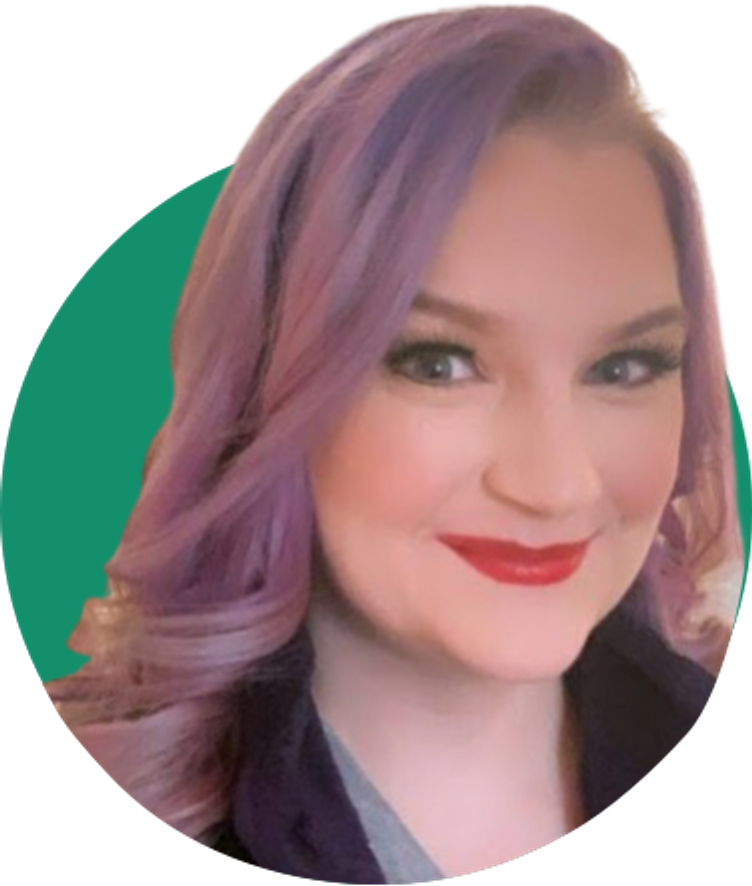
How did you become a privacy/compliance expert? What do you love about it?
Somewhat by surprise
I volunteered to do it
Here, six years later!
I came into privacy and compliance entirely by accident, as I think most of us do, judging by anecdotal research. I was working on the support team for one of the startups Salesforce bought, and the question of “who wants to be trained to work on deliverability” came up. I was basically volunteering for anything and everything, so I offered to take on deliverability without really knowing what it was.
For a little over a year, I was on both the deliverability and compliance teams, which led to some awkward interactions with clients- on one side, I was helping their mail get to the inbox, but on the other, I was confronting them over poor sending practices. I preferred the compliance side of the role, so that’s what I moved into.
My favorite thing about working in privacy and compliance is that I feel like I’m making a difference in the world. In my small corner of the universe, I’m keeping inboxes clean and keeping people safe. It feels good to be some small part of that effort.
I’m also a huge fan of the privacy and compliance community. Many of us work for competing products, but we’re great about setting that aside and helping each other figure things out professionally. We’re all on the same side: to help keep the internet safe for everyone and prevent abuse, and there’s something really wonderful about that.
What are some of the challenges that you’ve faced in your career? How did you overcome them?
I am fairly young
Worked to be seen as equal
Hustle and work hard.
Overwhelmingly, the biggest challenge of working in anti-abuse is justifying why it’s so important to an email-focused product. Anti-abuse is funny in that if you don’t see problems, it means I am doing my job correctly…..but then if leadership doesn’t see problems, they think, “there must not be anything for her to deal with so we don’t need an anti-abuse team.” It’s a strange catch-22, but I’ve been very blessed to have business leaders and executives who understand the importance of my role as it relates to our product.
Personally, my biggest challenge has been getting to the point where I am seen as an expert and an equal in the industry. I’m a young woman in a male-dominated field, and my age in particular tends to make people think I’m inexperienced. It can be easy to fall into impostor syndrome- thinking that my knowledge and experience don’t match up and that I don’t belong in the industry.
I’ve worked to overcome that perception by volunteering to do anything and everything I can get my hands on. Anti-harassment chair? Sign me up. Working on policy documents? Definitely. Volunteering to mentor and be mentored? Yes!
I also work hard to catch myself- is this something I’d say to a friend? Would I tell them they weren’t good enough and they should give up, or would I tell them they could do it and they should keep trying? No, absolutely not, I’d be WILDLY encouraging toward them. I need to extend myself that same grace and be my own cheering squad.
What advice do you have for other women looking to get into this field?
Be useful to all
You will be the best resource
Need help? Contact me!
Put yourself in a position to be useful. No one is going to come to you and say, “Hey, do you want to join the anti-abuse industry?” If you want it, you need to go for it. Be persistent about volunteering for anything and everything you’re interested in. It may take time, but you’ll get there, and if you need help getting started, feel free to contact me. I’m happy to help!
What do you love about Women of Email?
I am involved in a lot of very technical email groups (and when I say very technical, I mean, there are often arguments in which people quote baseline technical standards from memory), and they can be SO intimidating.
Women of Email is the opposite of intimidating. It does an excellent job of providing diverse voices and perspectives in addition to offering a supportive and positive environment.
As an example, I came to the board with a suggestion to run “No stupid questions WoEdnesday,” in which I take anonymous questions and post them to a thread for others in the group to answer. The Women of Email board was immediately (and I mean immediately, within 2 minutes of a Slack message) supportive of me trying it out. I didn’t have to justify or defend it, I just had to say, “I want to do this.” That’s something you don’t easily find in any group, so it’s been very refreshing to work with Women of Email.
How do you maintain momentum when you’re working through multiple challenges simultaneously?
Eat your frog first thing
Great productivity trick
But caffeine does help.
“If it’s your job to eat a frog, it’s best to do it first thing in the morning. And If it’s your job to eat two frogs, it’s best to eat the biggest one first.”- Mark Twain
It’s easy to put the biggest challenge off until the last minute, and as a procrastinator myself, I’m very qualified to tell you that.
But when you put off the big task, all it does is sit there in your mind, making every other task less productive. You’re spending half your energy worrying about the thing you’re deliberately not doing, and that energy isn’t really serving you in a positive way.
So, I started eating my big frog – taking on my biggest challenge of the day – first. Doing that keeps me motivated to knock out whatever other tasks needed to be done. I’m not dreading the scary task because I’ve already done it and can move through my day with a sense of accomplishment, which in turn motivates me to complete the other, smaller challenges.
What’s the key to successful problem-solving?
It’s knowing when to ask for help, which I know can be difficult! I’ll illustrate my advice with a personal story to convince you:
At the beginning of the COVID-19 pandemic in the US, I started an organization to make face shields for healthcare workers. Originally, I thought I would be a one-woman everything- I’d take orders, make shields, obtain supplies, make deliveries, ship, do all the administrative work, fundraise, etc. As I spent an afternoon looking around my guest bedroom at 200 shields in various states of completion, I realized that if my ultimate goal was to help people, I needed help from people.
I asked Atlanta Beats Covid for help, and I was able to hand off most tasks and focus on plastic casting for shield visors. Asking for help led me to new ideas, a new shield design, and access to tools I hadn’t considered. For example, I was using transparency sheets and a hole punch, but Atlanta Beats Covid had a laser cutter and a much more efficient process.
Because I was willing to ask for help, I’ve been able to make a much bigger impact, and I’ve cast more than 5,000 face shields.
Dr. Ada Barlatt, Ph.D - Founder and Chief Analytics Officer at OperationsAlly
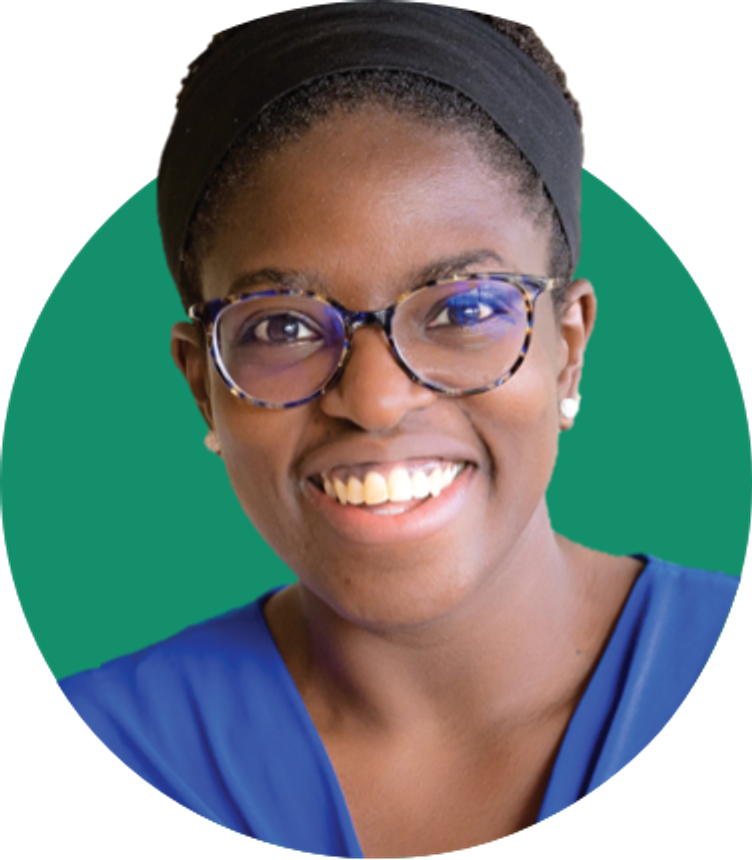
How did you get into analytics ? What do you love about it?
For as long as I can remember, I’ve always had a love for math. I actually have very fond memories of doing my math homework as a child, and I followed this passion all the way to engineering school. I majored in Industrial and Systems Engineering (ISE) and then decided to study ISE all the way to the doctorate level. My interest in math, systems, and helping people naturally led me to my work in analytics. I have so much fun organizing and presenting information, and email marketing is a great place to focus my passion and energy.
I define analytics as the practice of using data to help make decisions. I love it because I really enjoy finding simple solutions to problems. While I’m working, I identify the insights that are important to my clients’ business and the people they serve. Often, new perspectives and insights are revealed that may not have been seen without data analysis. I love that analytics provides a rich source of information that can lead to better quality decision-making.
What precipitated the switch from engineering to analytics? Where do you see the overlap between the two fields?
Fortunately, for me, there was not much of a switch at all! In fact, Industrial and Systems engineering is a big part of analytics, and that is what I am trained to do (my Ph.D. was focused on Operations Research).
Just as there are many disciplines that make up the world of science, there are also many disciplines that fall under the category of analytics, like Computer Science, Operations Research, Statistics, Industrial Engineering, and Data Science.
I can apply computing and analysis to make systems, processes, and organizations work better, and that’s where using data to make decisions – analytics – comes in.
Tell us about Operations Ally. Why is it important in today’s business climate?
OperationsAlly helps organizations access meaningful insights from their email marketing data. My clients use ActiveCampaign, and they care about providing real value to their customers. By adding my analytics skills to their team, they get a new perspective on their data that allows them to provide better customer service and see a real increase in sales. The data within their ESP is a powerful resource. I work with clients to help them extract the hidden wisdom that goes beyond the traditional practice of just looking at open and click rates.
Today, more than ever before, organizations and business owners have access to a treasure trove of valuable information that comes directly from their own customers’ actions – not just from “best practices” or benchmarks in general. With the know-how to unearth and interpret that data, they can make sound decisions and grow their business.
What are some of the challenges that you’ve faced in your career? How did you overcome them?
My largest challenge has been finding the “right fit” for my career. One of the ways I’ve been able to overcome/manage this challenge is by choosing to stay fully present at each part of my career journey: truly focusing on the lessons of each experience and applying those lessons to the next phase of my journey.
Choosing to view my career as a series of experiments allowed me to observe what went well, what did not go well, what my goals are, and so on. I could then take that “data” and apply it to my next round of service offerings.
At this stage, I’m so excited to have been so warmly welcomed by the email community. Shifting my focus into this work has been a great transition.
Why should email marketing teams be devoting resources to data and analytics?
It is a treasure trove! There is so much valuable information that can be explored. Your data can help you deeply understand how your products and services are resonating with your audience and what you can do now to move closer to your goals. Companies often focus on acquiring new subscribers, but in some instances, investing in analytics may be less expensive and more valuable than getting new people on your list.
If your data is properly leveraged, it can show your marketing team impactful ways to drive real, bottom-line results. Analytics can inform everything from campaign design, messaging and communications through product design and development.
What advice do you have for other women looking to get into this field?
The world needs more people that understand data — how to collect it, interpret it, and share the insights in an accessible way. I love email analytics because it has a bit of everything. There are so many layers and levels of data to be explored.
If you have the interest and drive, then you are more than capable of being successful! I would recommend doing some “homework” in the field. There are so many people that would be happy to speak with you and help you determine if it’s the right fit. A data analytics profession may be the perfect way for you to live the life of your dreams!
How do you know when you’ve done a great job for your clients?
One of my favorite parts of the work I do with my clients is helping them learn things from their data that they were not aware of before. I know that I’ve done a great job when they use those insights to make adjustments in their business that lead to direct improvement.
If I can get my clients to see beyond the numbers and understand how the data is a representation of the real lives they impact, then I know I’ve done my best work.
As an example, I had a customer recently who was equally focused on two key subsets of her audience. However, through my analysis, the data revealed that her most engaged, paying customers were actually skewed more heavily towards one subset than the other.
With that one insight alone, she shifted her focus, and as a result, her next product launch yielded a 250% increase in revenue over the previous launch. The increase is great, but most importantly, she was able to see her audience in a new way and work on creating products that met their needs more meaningfully.
Magan Le - Content Marketing Manager at Litmus

How did you get into email marketing? What do you love about it?
There was an email marketing role open at the company I was working for in 2010. I love writing, so I thought it’d be a perfect lateral move for me. Of course, email marketing is much more than that, but the content aspect of it is still one of my favorite parts because it’s what draws your subscribers in and makes them fall in love with your brand. I also like how data-driven email can be, revealing email insights that can fuel the rest of your marketing mix. Email is amazingly powerful!
Which email trends are you excited about?
Email content doesn’t seem to get as much attention as design or development. But with the current pandemic and economic crisis, I’ve been seeing a lot of brands pivot their focus to driving engagement through content instead of purely driving sales, and I am loving it! From a more technical perspective, I’m excited about AMP for email (who isn’t?) and how it can bring a more enriching experience to the inbox. “Email is dead?” Pft, never.
What are some of the challenges that you’ve faced in your career? How did you overcome them?
Growing up as a poor, female minority raised by a single immigrant mother, I often found it difficult to connect with colleagues, especially if they expected me to act or write like a middle-class white person. I didn’t understand the pop culture references or clichés I was expected to know and use. It sometimes felt like I wasn’t a “culture fit,” which made me feel unheard. This was challenging when I wanted to make email better (as an experienced marketer!) or move up in my career.
Because of everything I’ve experienced in my life, I like to think I’m pretty resilient. But I have to admit, no amount of grit has helped me overcome career challenges more than my amazing mentor and the other people who have advocated for me.
It can be a hard pill to swallow, but sometimes what you need is for someone more privileged than you to speak up for and support you. That’s why it’s incredibly important for men to support women and for the white community to support BIPOC, for example. And now I’m driven to use whatever power I have to help lift others up, too.
What advice do you have for other women looking to get into this field?
First of all, how do you even know about email marketing as a career?! Haha, most people fall into it by accident. But anyway, my biggest piece of advice would be to join Women of Email and get involved with #EmailGeeks.
Because it’s so niche, email marketing is often misunderstood, and you can feel like you’re walking a lonely path. You’re not alone! We are an awesome and friendly community helping each other make email better.
What’s the key to a successful content marketing strategy?
It’s all about your audience: their pain points, their needs, and then, how can you help? A successful content marketing strategy requires you to always put your audience at the center and consider their personal journey to and with your brand. This helps you prioritize what you should create while building the narrative around it.
What role do you think “story” should play in email marketing?
Storytelling should be woven into every email, even if you think you’re just selling clothes, for example. I’m not talking fairy tales here—think of it more like a customer journey. Using a story helps you think outside of a single email and into the overall email marketing experience.
What are your subscribers’ email touchpoints from the moment they give you their email address, to their first purchase and beyond? It’s playing the long game, and with everyone pushing products, your story is your value and way to not only stand out in the inbox but also to drive fanatical loyalty.
Josie Garcia - Principal, Deliverability Consultant at Salesforce Marketing Cloud
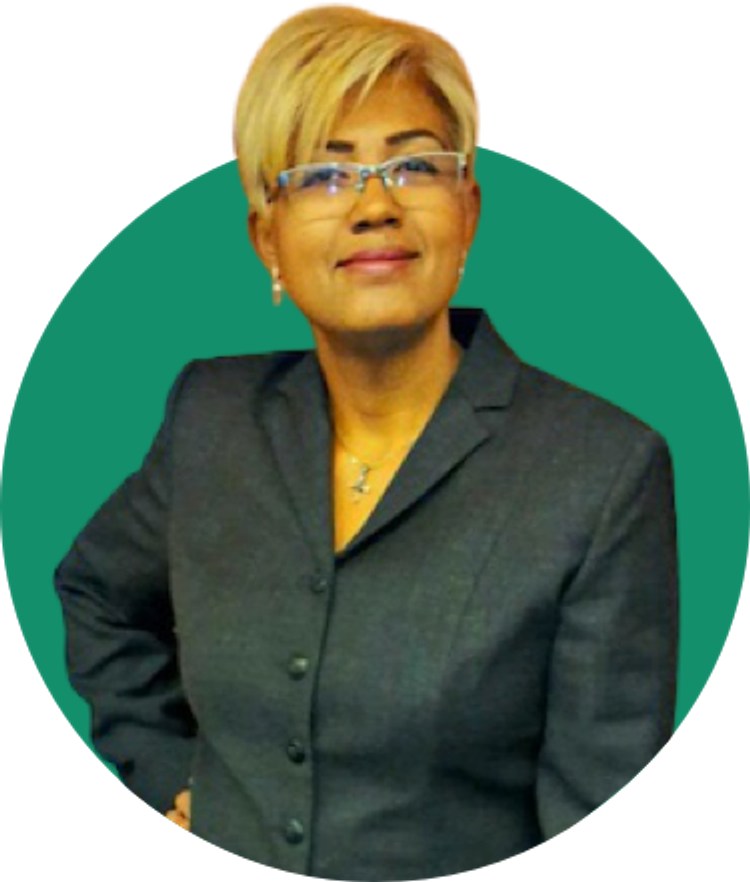
How did you get into email deliverability? What do you love about it?
I started out as Executive Secretary to a couple of CEOs. In 2000, a high school friend of mine reached out to me. He was now a Chief Technology Officer at 24/7 Media and said I should apply for a job as Privacy Coordinator. I knew nothing about email deliverability, but I applied and was hired on the spot.
I learned everything I know on the job. It was really a sink or swim situation, and I was not only swimming, but I was also surfing!
Deliverability is my passion. I get so much satisfaction from educating clients on email best practices, providing them with actionable recommendations, and holding them accountable for their mailing practices and list quality. I’ve been dubbed “Queen of the Data Smackdown” at Salesforce, where I’ve worked for the past 9 years. These days, I work on client migrations and high-level escalations, so I’m basically, putting out fires and talking clients off the ledge with empathy and tough love. Client success really is my #1 priority.
What are some of the challenges that you’ve faced in your career? How did you overcome them?
My biggest challenge was raising 2 special needs children while building my career around deliverability. I never knew my mother, and I lived in foster homes for most of my youth, which is likely one of the reasons I found myself in an abusive relationship.
I left that relationship in Virginia and moved back to New York with my two baby boys and nothing but the clothes on our backs. We lived in a homeless shelter for 6 months, and that was the hardest thing I’ve ever done because I’ve always worked and been very independent.
While at the homeless shelter, I taught other women computer skills and helped them study for their GED. After 6 months, I obtained housing. I went right back to work and have never looked back. My sons are all grown up now and one of them even worked at Salesforce for 2.5 years, a proud moment for me.
What advice do you have for other women looking to get into this field?
My advice would be to embrace the opportunity to take up space. Learn as much as you can, be confident, and, most importantly, do it afraid!
What do you love about Women of Email?
First of all, the founders of WoE are all my heroes for having the courage to use their positions and voices to lift up other women. I love the camaraderie we all share and how they go out of their way to encourage me and provide me with the opportunity to grow in my career. WoE is all about empowering women. The future is female, and WoE is an organization with a strong voice and a presence that I am proud to be a part of.
What do email marketers often overlook when it comes to deliverability?
Their opportunity to build a real relationship with subscribers. It’s so important to collect subscriber preferences at the point of sign-up and then honor those preferences. It’s the first step in building trust with subscribers.
Some marketers don’t really look at their data, which is one of my favorite things to do. I can sit there and tell a marketer they have poor list quality, and then they push back and say they have a clean list. But when I show them the data in their own bounce logs, there is no room for pushback. When you put a visibly fake email address in size 54 font on one slide with a screenshot underneath screaming, “Domain for Sale!” it definitely gets their attention.
At that point, my logic becomes undeniable, and that’s the key to getting marketers to ask for help and take responsibility for their mailing practices and list health.
How do you measure success for your team?
Oh, that’s easy! Customer Satisfaction Surveys. The team I work with frequently receives high CSAT scores for the projects we work on. The key to being a good Deliverability Consultant is passion. If you have no passion for deliverability, it reflects poorly on your work.
Deliverability is not for everyone. Iit can be a thankless job, but over the many years I’ve been in this industry, I have made it my job to BE thanked – to be appreciated for consistently turning out great work which helps clients conquer their deliverability challenges.
Najee Bartley - Technology/Communications Director at BBVision Multimedia, Web/Email Developer at U.S. Bank
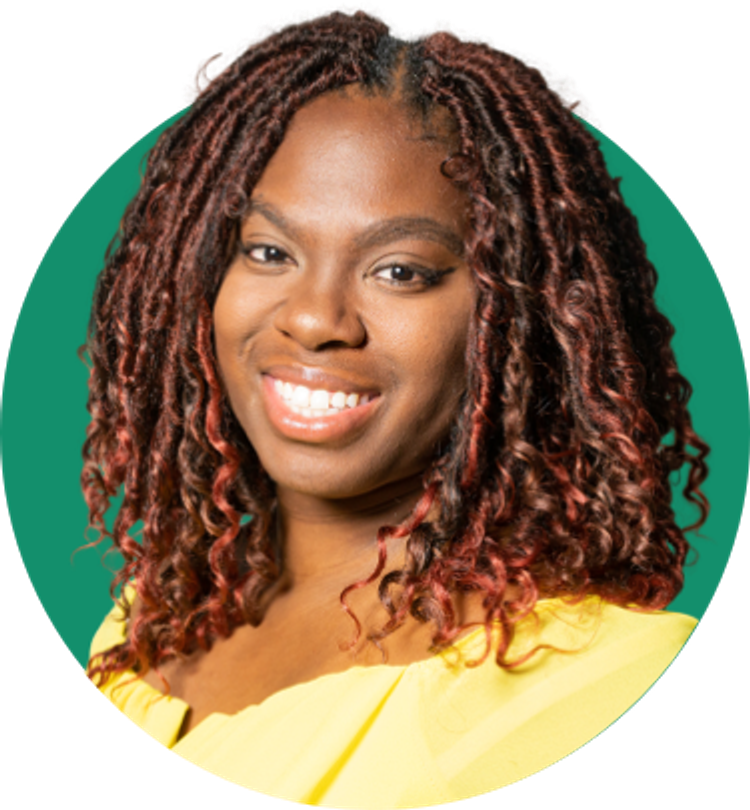
How did you get into email/web development?
Funny story: I had completed my psychology degree and worked in the field for about three years. It was not a great fit, so I decided to change careers. I joined a coding cohort in Philadelphia and started to learn to code. It was a 40 hour a week program that lasted for about four months. It was extremely tough to do while working a full-time job and being a mom and wife, but I wanted a career change that I knew would have great benefits for my family. I started my first career in technology as a UX developer at Vanguard, and two years later, I found myself at JP Morgan Chase as an email developer. I FELL IN LOVE!
What do you love about it?
I love the code! Personalization, dynamic fields, interchangeable modules based on client preference, the complexity, yet simplicity of coding an email versus a website… I could go on and on!! Most of all, I love the people I interact with. I love seeing how one subject line affects open rates or how many clicks an image gets. Using technology to understand people is a passion.
How do you keep your coding skills sharp?
I keep coding! Nothing to it but to do it: I challenge myself to build emails that are interactive, dynamic, and complex in every aspect. I watch tutorials, and most of all, I ask questions and go to sessions.
What are some of the challenges that you’ve faced in your career? How did you overcome them?
I have faced many challenges in my career, but each of them has been uniquely rewarding. One challenge is imposter syndrome: I get so nervous that I will disappoint people that I overthink, move too fast, and slip up. I have to take a deep breath and remember that I am NOT perfect, but I am smart enough to find the answers I need, and I get to work.
What advice do you have for women looking to get into this field?
I would say go for it, sister! Call me, text me, email me, take a class, get your certification, LET’S DO THIS!! It’s a great field to be in, and it allows you to be the mother, wife, consultant, BOSS, you want to be. Email is where it is at, ladies!
What do you love about Women of Email?
I love the community! These women encourage you to keep going, help when you have issues, and share in email growing pains.
What’s your definition of a great day at work?
My definition of a great day is when I can build one template that is completely dynamic, code it to be fully accessible for all readers, and then use that one template to send out completely different emails for various brands. I love a good dynamic email!!
Joi Brooks - Email Marketing Specialist, Inbox Army
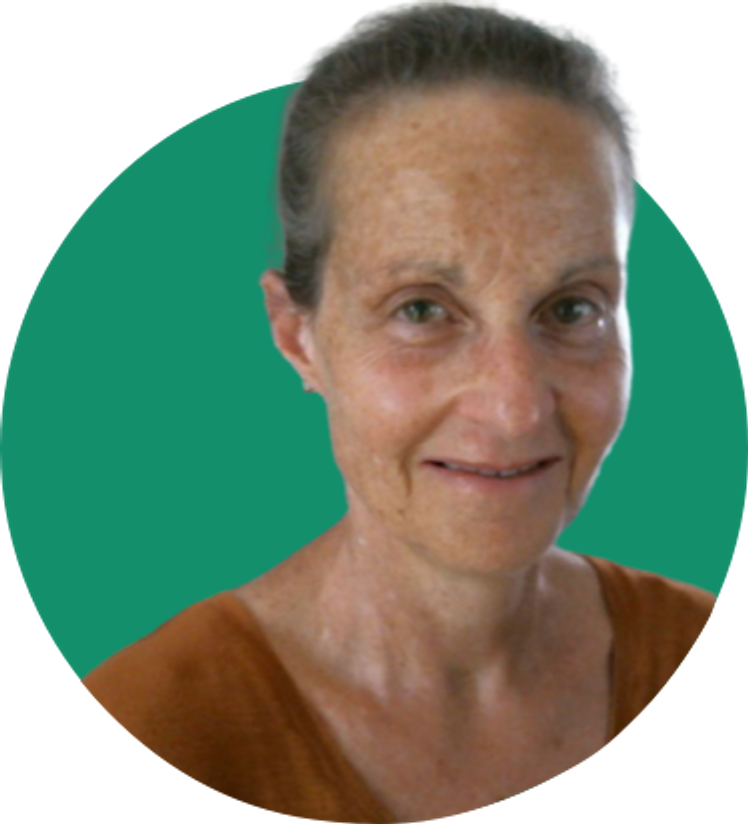
How did you get into email marketing?
I was in publishing, and the business was changing from print to digital, so new skills were born out of necessity. I was able to teach myself quite a lot, but I decided to get an AOS in computer applications.
My email epiphany occurred when I was given full responsibility to market book launches. Traditionally, this was done by snail mail: universities would receive a packet of book brochures and order forms in the mail. I got a list of email addresses, and I emailed thumbnails of book covers and summaries to the university department heads. The phones lit up, sales went wild, and boom! I was an email marketing specialist.
What do you love about it?
There are many similarities between publishing and email marketing: working with talented stakeholders, being there from start to finish, creating something from nothing, and a well-defined, iterative process.
I’m passionate, detail-oriented, and creative. I love learning new things, solving problems, and creating processes. This business has my name written all over it!
How does your passion for writing/literature make you better at your job?
I suppose you could call me a bookworm. I love learning about people, places, and things, and the easiest way to do this is by reading.
I read the classics, epics, history, non-fiction, biographies, bibliographies, Russian, American, French, English authors, international myths and legends, science fiction, and fantasy.
I eventually purchased a Kindle because my bookshelves were turning into book piles, and the libraries wouldn’t take my gently used paperbacks.
I also enjoy expressing myself, which is part of the reason I started my Email & Coffee blog. Refining when, how, where, and what to communicate is a pursuit and pilgrimage. I’m a student. Forever.
What are some of the challenges that you’ve faced in your career? How did you overcome them?
There have been SO many challenges. I’ll share two.
Challenge #1I’ve struggled with an aspiration to become SOMEONE. I suppose part of this is the result of being the second child, but I’m also a baby boomer who went gaga over television and movies. I was writing fan mail and submitting television scripts to all my favorite shows in junior high. I did receive a few letters back – from Mickey Dolenz of the Monkees and Ezra Stone, the director of Lost in Space – but my scripts were rejected. **Sigh**
Reconciling who I am to what I want to be has been a long and winding process. Over the years, I’ve discovered that success within a small venue is my sweet spot.
Challenge #2I enjoy communicating ideas and creating something out of nothing, and in the beginning, those skills led to promotions.
However, competing professionally in large groups with all the underlying dynamics is demanding for me, and I was afraid that my career path had leveled off. After 15 years in New York City trying to play a game that I wasn’t cut out for, I accepted full-time employment with companies closer to home.
At the time, Craigslist was trending, and since I had gotten a second degree in computer applications, I took on a few contracts in addition to my day job.
Before long, I had become a solopreneur and a highly adept remote worker. I discovered my secret sauce, and I’ve been contracting with agencies and small brands since 2006.
What advice do you have for other women looking to get into this field?
First off – and I can’t stress this enough – in life and in business, be brutally honest with yourself. What are your strengths? What are your aspirations? What are your boundaries? What do you bring to the table without it becoming a soul-sucking experience?
Answer those questions, and while you’re doing it, network: non-profit associations, associates and peers, social channels. Do not be afraid to reach out to people in the industry.
Then, start reading. Read everything you can that’s related to this field. Discover all you can wrap your brain around.
If you need to spend time or money on structured learning, remember that leaps of faith are often confidence builders.
Don’t be afraid of uncharted waters. Often that thing you don’t know is an opportunity to learn something new. It may be the next shiny new thing. It may become your tour de force.
What’s your definition of a great day at work?
Completing tasks is the first thing that comes to mind, because the end of one project always means the beginning of another.
An outstanding day for me is when I complete something complex or problematic, like taking a workflow on paper and creating it digitally in an email service provider (ESP) or managing a segment that targets and converts without bouncing all over the place.
Happy dance after I’ve migrated a client from one ESP to another.
Somedays something fun will happen. Perhaps I’ll attend a unique webinar, interact with someone cool on social, or learn a new skill.
Something always happens that makes the day worthwhile. I embrace silver linings.
Which email trends are you excited about?
Let’s face it, email isn’t dead but it isn’t always the smartest kid on the block. It seems easy enough to make email smart, right? An ESP is theoretically able to store a contact’s behavior to create profiles. But artificial intelligence (AI) in email is tenuous, and it requires more than just access to that email address: it needs all that highly coveted, intellectual property hosted on independent systems and trapped behind firewalls and legislature.
While big data across businesses may be problematic, a company can take its own data out of the silo and implement smart customer journeys that trigger, display, and deliver the right email at the right time. These agile campaigns require strategy and big data upfront for a subsequent big bang in sales.
ESPs are prepared to handle customer journeys with APIs that pull data from social, shopping, website, and various channel partnerships, making this an exciting time for email marketing. The age of data science is dawning!
Genna Matson - Senior SFMC Engineer at DEG & Social Admin, Cofounder at HowToSFMC.com
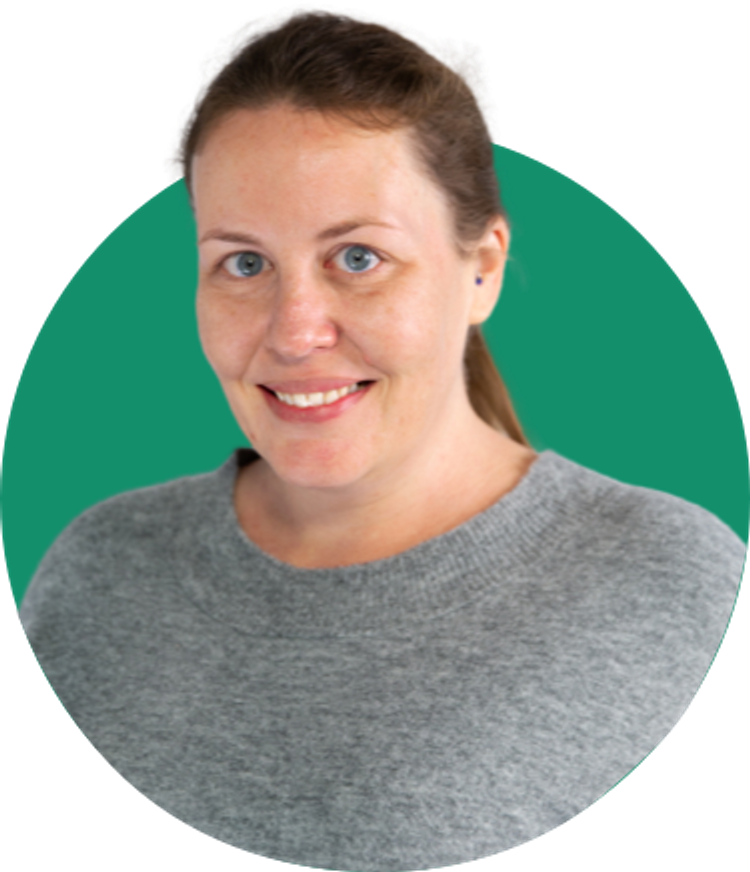
How did you get into email automation? What do you love about it?
Like a lot of #EmailGeeks, email found me; it was not intentional. Basically, I was working at a direct mail house, and a client approached us asking if we could help them set up their email program. I had some web experience, and data management was my jam, so I raised my hand and said, “I’ll give it a whirl.” Once I discovered how fun it was to make data get dressed up and go dancing in the customer’s inboxes, I fell in love and decided to make it a career.
What are some of the challenges that you’ve faced in your career? How did you overcome them?
Well, gender confusion has always been a part of my life, but it’s intensified since I began working in MarTech. One minute you’re in a room full of female marketing consultants and strategists. They’re asking you to share your knowledge about the technical side of email, and you’re respected. The next minute, you’re in the basement with dudes coding in the midst of an odd, nerdy, bro culture. You’re looking for your place, and you have to be one of the guys to be respected.
It’s been a weird balancing act, but a fun challenge at the same time. Communication and empathy are the skills I’ve worked to hone the most over the years, and they really help me with that balance, no matter who I’m working with.
What advice do you have for others looking to get into this field?
Don’t be afraid! Everyone makes mistakes, and that is okay. Most of the time, your marketing communications are not saving lives. If a mistake is made, no one will die. Try new things, even if you’re not sure they will work. Failure is how we grow.
What do you love about Women of Email?
I just love WoE! Women of Email helped me understand that I have value, a place in the community and that I deserve to be respected. They helped me find my voice. Because of the support, the members of WoE have shown me over the years, I’m now able to give back by mentoring and promoting others in the community.
What is your proudest career accomplishment?
There are two. The first is presenting my solution for an email content management system at Litmus Live in 2019, and the other is collaborating with other #EmailGeeks from around the world on the HowToSFMC.com (H2SFMC) project. H2SFMC is new. We went live in February 2020, and it has been so rewarding. We’re helping people learn how to flex a platform that doesn’t really offer in-depth training by exposing them to multiple techniques and solutions for common email marketing challenges.
How do you measure success for your team?
Well, for H2 we measure success in terms of community engagement. How many people are using our site and channels? How many people are requesting direct help, and who is asking to contribute? Our engagement has grown month over month so far, so we’re on the right path.
Knak is the first email creation platform built for the enterprise. If you want to empower your team (and we mean anyone on your team) to build world-class, on-brand emails and get them to market quickly, we’d love to chat! Reach out here, or check out our product pages.










